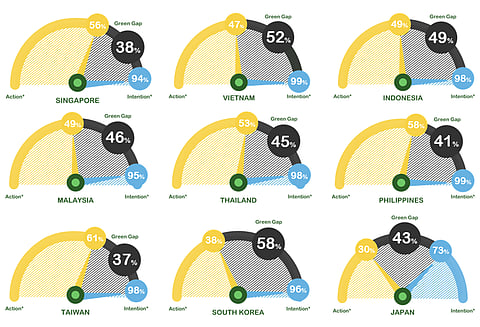
- NEWS
- the EDIT
- COMMENTARY
- BUSINESS
- LIFE
- SHOW
- ACTION
- GLOBAL GOALS
- SNAPS
- DYARYO TIRADA
- MORE

A recent survey revealed that 99 percent of local companies have established goals to achieve net zero in their operations.
Local enterprises also recommended digitalization for profitability and had lined up programs to cut carbon emissions.
According to the Schneider Electric sustainability survey, 97 percent of Philippine companies agree or strongly agree that digitalization is a key sustainability driver.
The same number also consider energy efficiency as a core aspect of their ecologically-friendly plan.
The annual poll was conducted with the global research firm, Millieu Insight.
Results showed 60 percent of Asia-Pacific business leaders feel that their company and country view sustainability as a “high priority.”
The poll stated that in terms of the industry’s perception of digital transformation, 94 percent of business leaders agree that electrification is key to their corporate sustainability strategy.
The survey engaged 4,500 C-level to middle-level business leaders across nine countries in Southeast and East Asia, including the Philippines.
The objective is to gauge sentiments and actions on sustainability within APAC and the local business community.
“We are seeing a growing trajectory towards greater sustainability integration into our local industries’ operations. As a leader in sustainable energy management solutions, Schneider Electric is reaffirming its commitment to support the business industry and the government in their pursuit towards their shift to green energy,” Ireen Catane, president of Schneider Electric Philippines, said.
The Green Action Gap, a metric used to estimate the difference between the organizations’ declared commitment towards their sustainability goals and the tangible actions to implement sustainable development by companies, revealed that while 99 percent of respondents have established sustainability plans, only 58 percent have set the plans into action.
The reasons cited for such inability included: poor incentives, regulations uncertainty, bureaucratic challenges, market data references insufficiency and lack of business priority.
Across the region, the top reasons reported for pursuing corporate sustainability were innovation and competitiveness (39 percent) and an increase in business opportunities (37 percent) with countries in Southeast Asia most likely to agree that sustainability contributes to business growth. Risk management, reputation and opportunity for cost-saving round out the top five motivating factors companies consider when making decisions around sustainability strategy.
Incentives key
Most business leaders across the region (82 percent on average) believe that providing more incentives is more effective than enforcing penalties to encourage private sector compliance with government sustainability goals.
“We are encouraged by the growing awareness and commitment among Asia’s companies to establish sustainability goals,” Catane emphasized
“The survey’s findings on the intention-action gap reveal that there is still work to be done. As we navigate the urgent need for sustainability, it becomes more crucial for businesses and the public sector to collaborate and leverage innovative solutions to create a more sustainable future,” she added.
